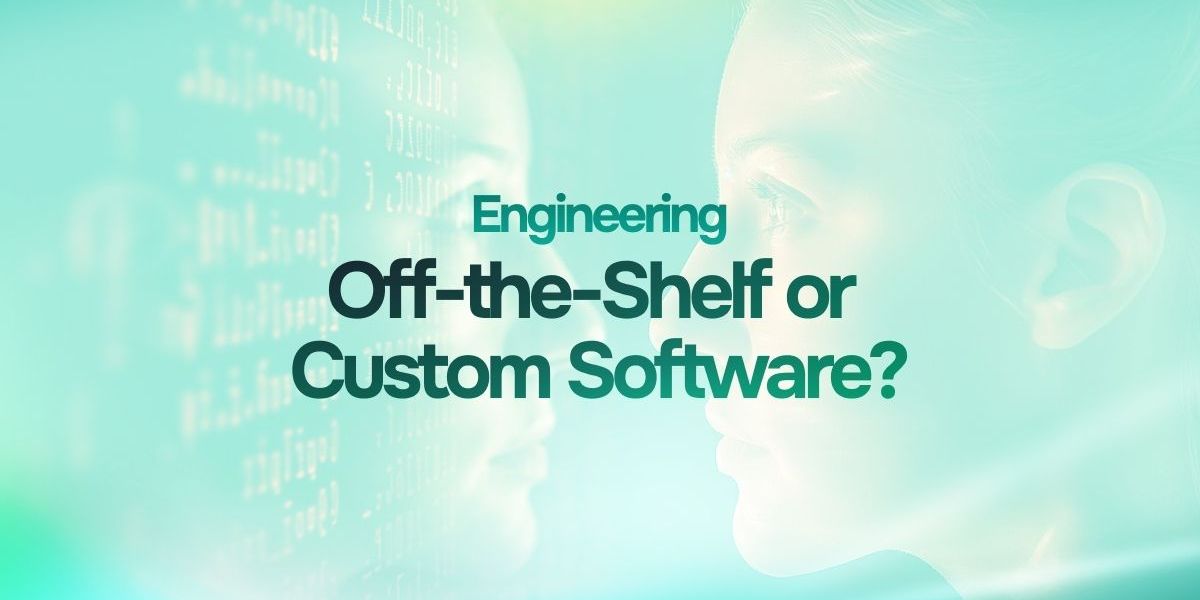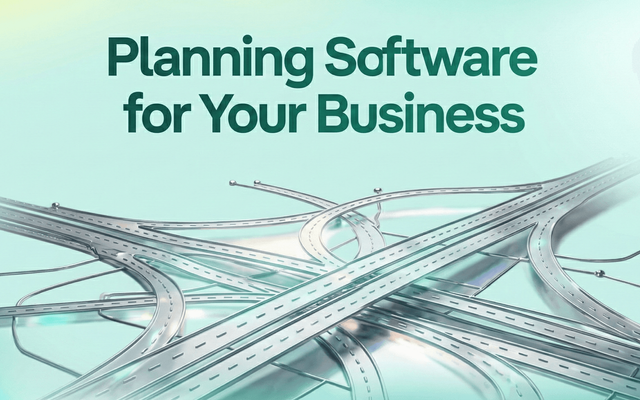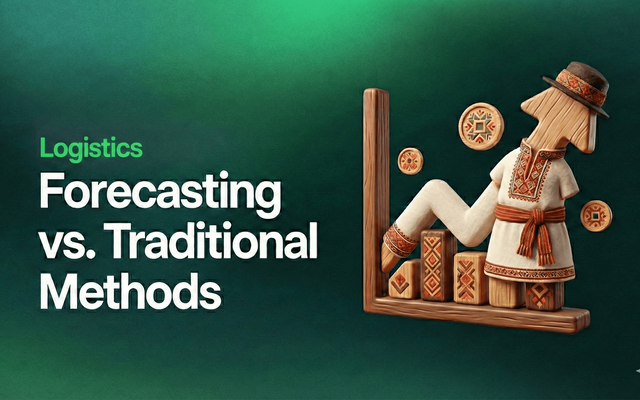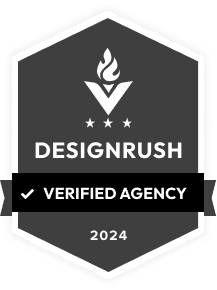
You know that feeling when you're shopping for clothes? You walk into a store and see two options: grab something nice off the rack that fits pretty well, or get something custom-made that's perfect for you. That's exactly what choosing between off-the-shelf software vs custom software feels like for business owners today.
Here's the thing - this decision matters more than ever in 2025. Your software isn't just a tool anymore; it's what keeps your business running, your customers happy, and your team productive. Get it wrong, and you'll be dealing with headaches for years. Get it right, and you've got a solid foundation that grows with your business.
So let's break down the difference between off-the-shelf and custom software in simple terms. No tech jargon, no complicated explanations - just the facts you need to make a smart choice for your business.
What Is Off-the-Shelf Software?
Off-the-shelf software is basically ready-made software that companies build once and sell to thousands of businesses. It's like buying a car from a dealership - you get what they've already built, and it works for most people's needs.
These solutions are designed to solve common business problems that lots of companies face. While you can't change much about how they work, they're tested, proven, and ready to go right out of the box.
Common Examples and Characteristics
In 2025, you will probably use some of these popular off-the-shelf solutions already:
Microsoft 365 - for emails, documents, and team collaboration
QuickBooks - for bookkeeping and financial management
Trello or Asana - for project management and task tracking
Zoom - for video meetings and communication
Shopify - for online stores and e-commerce
Here's what makes these solutions appealing: millions of people have already used them, found the bugs, and helped make them better. You're getting something that's been tested in the real world, comes with lots of help and tutorials, and has a clear price tag.
Advantages and Use Cases of Off-the-Shelf Software
Why do so many businesses choose off-the-shelf software? Here are the main reasons:
Quick setup - You can be using it within days or weeks, not months
Predictable costs - You know exactly what you'll pay each month or year
Built-in support - There are tutorials, help forums, and customer service teams ready to help
No technical headaches - Someone else handles updates, security, and maintenance
This approach works great for small and medium businesses with standard needs. If you run a restaurant, retail store, or service business doing pretty typical things, off-the-shelf software can handle most of what you need without breaking the bank.
What Is Custom Software?
Custom software is the opposite - it's built just for your business, like having a house designed and built exactly how you want it. Everything from the layout to the features is created to match how your company actually works.
This means you get software that fits your processes perfectly instead of having to change how you work to fit the software. It takes longer to build and costs more upfront, but it's yours completely.
Examples and Key Features
Custom software comes in all shapes and sizes, depending on what a business needs:
Custom CRM systems - Built to match exactly how your sales team works with customers
Internal management platforms - For handling unique workflows that generic software can't manage
Specialized industry tools - Like custom scheduling systems for hospitals or inventory management for manufacturers
Customer-facing apps - Mobile apps or websites that give your customers exactly what they need
The big difference is that every button, screen, and feature is designed with your specific business in mind. Nothing is generic or "close enough" - it all works exactly how you need it to.
Advantages and Typical Applications of Custom Software
Here's why some businesses choose to build their own software:
Perfect fit - Every feature works exactly how your business operates
Competitive advantage - You can do things your competitors can't
Grows with you - Easy to add new features as your business changes
Complete control - You decide what gets built and when
No monthly fees - Once it's built, you own it completely
Custom software makes sense for larger companies or businesses with unique needs. Think hospitals with special patient management requirements, manufacturers with complex supply chains, or companies in highly regulated industries where generic software just won't cut it.

Key Differences Between Off-the-Shelf and Custom Software
Now let's get into the real meat of this topic. Understanding the difference between custom software and off-the-shelf software comes down to five main areas that will directly impact your business.
Development Time and Flexibility
Here's where you see the biggest difference. Off-the-shelf software is ready right now. You can sign up today and be using it tomorrow. Custom software? That's a different story - you're looking at months or even years of development time.
But here's what you get with that extra time: complete control. With custom software, you decide what features get built first, how everything looks, and what happens when your business needs change. Off-the-shelf software forces you to work within its rules and wait for them to add features you need.
Cost Structure Analysis
Money talks, so let's talk numbers. When comparing custom software vs. off-the-shelf solutions, the cost picture looks completely different:
Off-the-shelf costs:
Low upfront costs (sometimes free to start)
Monthly or yearly subscription fees
Predictable budgeting
Extra costs for add-ons or more users
Custom software costs:
High upfront development costs
No ongoing subscription fees
Maintenance and update costs
Potential for better long-term ROI
The real question is: how long will you use this software? If it's for years, custom might actually cost less over time. If you need something quick and might change later, off-the-shelf makes more sense.
Scalability and Integration Capabilities
This is where things get technical, but it's important. As your business grows, you need software that can grow with you. Custom software is usually built from the ground up to handle growth and connect easily with other tools you use.
Off-the-shelf software might hit walls as you scale. Maybe it can't handle more users, or it doesn't play nice with other software you need. When that happens, you're stuck waiting for the vendor to fix it, or you have to find workarounds that slow everyone down.
Security and Compliance Considerations
Security is huge in 2025, especially if you handle customer data, work in healthcare, finance, or deal with regulations like GDPR. Here's how the two approaches differ:
Custom software lets you build security exactly how you need it. You can add specific protections for your industry, control exactly where data goes, and make sure everything meets your compliance requirements.
Off-the-shelf software has security features built for everyone, which might be great or might not cover what you specifically need. You're trusting the vendor to keep things secure and compliant, which works for many businesses but might not be enough for yours.
User Experience and Workflow Alignment
This might be the most important difference for your day-to-day operations. Custom software is designed around how your team actually works. Every screen, button, and process matches your real workflows, which means less training time and fewer mistakes.
Off-the-shelf software forces your team to adapt. You might have to change how you do things to fit how the software works. Sometimes that's fine, but sometimes it makes simple tasks more complicated than they need to be.

Off-the-Shelf vs Custom Software: How to Choose the Right Approach in 2025
Okay, so how do you actually decide? It comes down to asking yourself some honest questions about your business and being realistic about what you need vs. what you want.
Business Assessment Framework
Start with these key questions:
How big is your business? Small companies usually do better with off-the-shelf solutions
What's your budget? Custom software needs a bigger upfront investment
Do you have tech people on staff? Custom software needs ongoing technical support
How fast do you need this? Off-the-shelf wins if you need something now
Is your business pretty standard or unique? Unique processes often need custom solutions
Be honest here. If you're a small business doing pretty typical things, off-the-shelf software will probably work great and save you money and headaches. If you're larger or have complex, unique needs that give you a competitive edge, custom might be worth the investment.
Hybrid Approaches and Modern Solutions
Here's something many people don't know: you don't always have to choose one or the other. Many smart businesses use a hybrid approach that gives them the best of both worlds.
For example, you might use Salesforce for your basic customer management but build custom integrations that make it work exactly how your sales team needs. Or you could start with off-the-shelf software and add custom features later as your business grows.
This approach can get you up and running quickly while still giving you the custom functionality that makes your business unique. It's like buying a house and then renovating it to fit your needs perfectly.
Making Your Decision Between Custom Software vs. Off-the-Shelf: Final Considerations
At the end of the day, this choice isn't really about the software - it's about your business strategy. Off-the-shelf solutions are great when you need to solve standard problems quickly and affordably. Custom software makes sense when your unique processes are what make you competitive, or when off-the-shelf options just can't do what you need.
Think about where your business will be in a few years, not just where it is today. Will that off-the-shelf solution still work when you've doubled in size? Will your custom software investment pay off through increased efficiency or new capabilities?
The best software choice is the one that supports your business goals, fits your budget, and matches your team's abilities to manage it. Whether you go with the quick and proven route of off-the-shelf software or invest in the perfect fit of custom development, make sure it's a decision that moves your business forward, not just solves today's problem.







